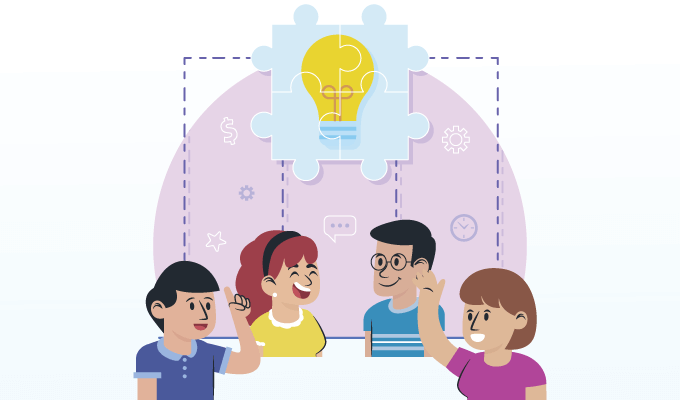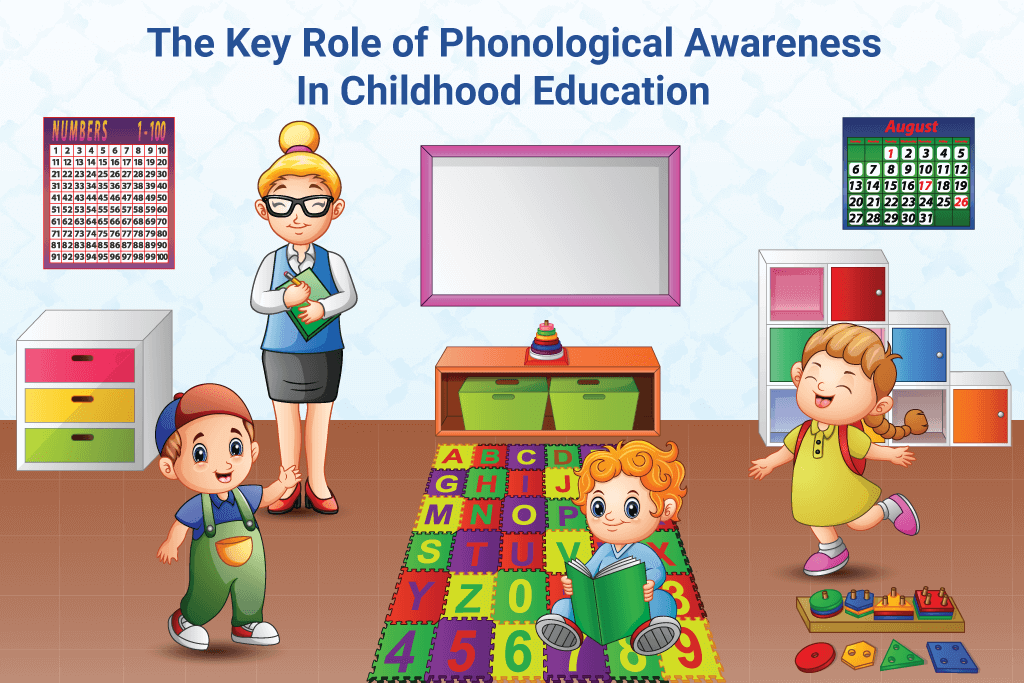The Key Role of Phonological Awareness In Childhood Education
Whether you’re a mom, a dad, a teacher, or simply curious about kids’ growth, you’re well aware that teaching a child to read early on is both challenging and important. One of the fundamental pillars of early childhood education is phonological awareness.
A student who attends phonics classes can develop better reading and language skills. Such skills are helpful in boosting their confidence and in preparing them for lifelong success.
In this blog, we’ll discuss the importance of phonics and how these classes are beneficial for children.
Enhance Your Child’s Learning Journey with Phonological Awareness
A] Understanding What Is Phonics
Phonics is the relationship between sound and letters. A phonics course aims at helping students understand how different sounds are related to words and letters.
Phonics helps a child decode written words by sounding them out. Understanding phonics helps a child understand the building blocks of words. They learn how to spell words by applying the appropriate letter-sound relationship. This way, students can easily understand unfamiliar words.
When a child develops phonemic awareness, he becomes more confident to talk to people around him. Phonics allows students to build their vocabulary and understand word meanings.
They develop the ability to read the text accurately and understand what’s mentioned in the text. For example, they might break down the word ‘cat’ into /k/ /a/ /t/ and then blend those sounds together to say ‘cat.’
B] When To Start Teaching Phonics?
A common question that parents and teachers often come across in early childhood education is when to begin teaching phonics. A parent or a teacher should carefully consider the readiness of the student to enroll in a phonics class.
Children go through various developmental stages at their own pace. These stages include cognitive, linguistic, and fine motor skill development. The ability to grasp the concepts of phonics and apply them effectively depends on a child’s stage of development.
Usually, a child enters his developmental stage during his kindergarten or pre-schooling age. But you can even start early if you think your child is ready.
C] 6 Benefits Of Teaching Phonics
Several reasons explain why is phonics important. Phonics can shape the young minds of a child in the following ways.
1. Improves Vocabulary And Language Skills
A child can communicate effectively only when he has a good vocabulary and great language skills. Phonics can enhance a child’s vocabulary as it offers them a structured approach to understanding different words and meanings.
A child learns better usage of words because:
- Phonics instruction helps a child understand the connections between sounds and written words. Students discover reading by pronouncing words phonetically. Phonological awareness makes it easy for them to grasp the meanings of those words.
- It promotes word recognition. So, a child can understand and use new words within a given context. As a result, he develops better comprehension and expression in both reading and writing.
2. Develops Reading Fluency
Childhood education in phonics helps in developing reading fluency among students. A child learns to read text smoothly, accurately, and with understanding.
- When children recognize letter-sound relationships, they can decode words quickly. It makes them read faster and understand better.
- Since students understand the connections between sounds and letters, they can read with confidence.
- Phonics can prepare students for more extensive reading. Children become fluent not only in reading but also in communicating. Thus, they become more expressive and confident.
3. Improves Storytelling Abilities


Storytelling is extremely important for a child in his formative years. It helps in making a child creative and also boosts his imagination. The Phonics method help students in understanding the context of words and narrative which nurtures their thinking capacity.
- Phonemic awareness allows children to decode new words effectively. Thus, they can understand stories and recount them easily.
- Since a child becomes fluent and expressive, he also succeeds in making up his own stories and reciting them easily.
- Children who grasp the phonetic elements of storytelling can better understand characters, settings, and plot developments. Thus, their storytelling ability becomes more comprehensive and compelling.
4. Develops Imagination And Empathy


Every parent wants his child to have great imagination and empathy. When a student has empathy, he can connect with his peers and live a good social life. Imagination and empathy contribute significantly to a child’s emotional development.
Phonics instruction fosters these qualities:
- Phonics encourages imaginative thinking when a student explores texts and stories. As children become skilled readers, they can visualize and explore various scenarios and characters within stories.
- This engagement with stories also nurtures empathy. A child can relate to and empathize with the experiences and emotions of the characters they read and hear about.
5. Facilitates The Understanding Of Syllable Structure
Understanding the syllable structure is extremely important for a student. The knowledge of this structure allows a student to brush up on his language skills. Phonics makes language development simple in the following ways.
- In phonics classes, teachers teach children to break words into syllables. These syllables are the smaller sound units within words. When a student learns how to break down the words, they improve their ability to read and spell accurately.
- Practical exercises and games illustrate the concept of syllables and their relation to phonics. Phonics involves identifying and working with syllables. So, children develop a deeper understanding of word structure. It enhances their reading and spelling skills.
6. Improves The Recognition Of Symbols Based On Sounds
Recognition of the sound-symbol relation is the foundation of reading. Phonics instruction helps students in understanding this crucial connection:
- Phonics teaches children to connect sounds to letters to help them decode words and read fluently. This recognition of symbols based on sounds makes reading more enjoyable and easy for a child.
- Understanding sound-symbol relationships simplifies the process of learning and understanding new or unfamiliar words.
Enhance Your Child’s Learning Journey with Phonological Awareness
Conclusion
Phonics instruction offers students numerous benefits in early childhood education. A phonics course helps enrich vocabulary and language skills in a student. It promotes reading fluency, and storytelling abilities in a child.
Not only this, but phonemic awareness is also helpful in developing empathy among the students. It helps in their emotional and personal development. Opting for phonics equips children with the skills they need to read, write, and express themselves effectively. It sets a solid foundation for lifelong learning and communication.
The benefits of phonological awareness explain why teachers and parents should incorporate such classes into their child’s education. Such classes can provide children with a strong foundation for a successful future.

